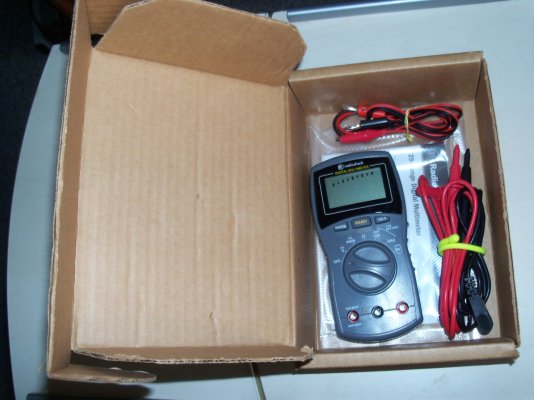easysurfer
Give me a museum and I'll fill it. (Picasso) Give me a forum ...
- Joined
- Jun 11, 2008
- Messages
- 13,156
Thinking of buying a case for my multimeter as 1) got tired to taking in and out the tight original box and 2) haven't spent all my gift cards from Christmas yet.
As, I was browsing, started to ask myself, do I really need a case? In other words, are are they so fragile that a case is needed for protection? Or is a case mainly for organization and vanity?
I did go away from the original tight box and at this moment am using a cardboard box box that I saved from a previous hard drive purchase. Actually the cardboard box fits quit nicely as a poor man's multimeter container .
.
As, I was browsing, started to ask myself, do I really need a case? In other words, are are they so fragile that a case is needed for protection? Or is a case mainly for organization and vanity?
I did go away from the original tight box and at this moment am using a cardboard box box that I saved from a previous hard drive purchase. Actually the cardboard box fits quit nicely as a poor man's multimeter container
Last edited:





